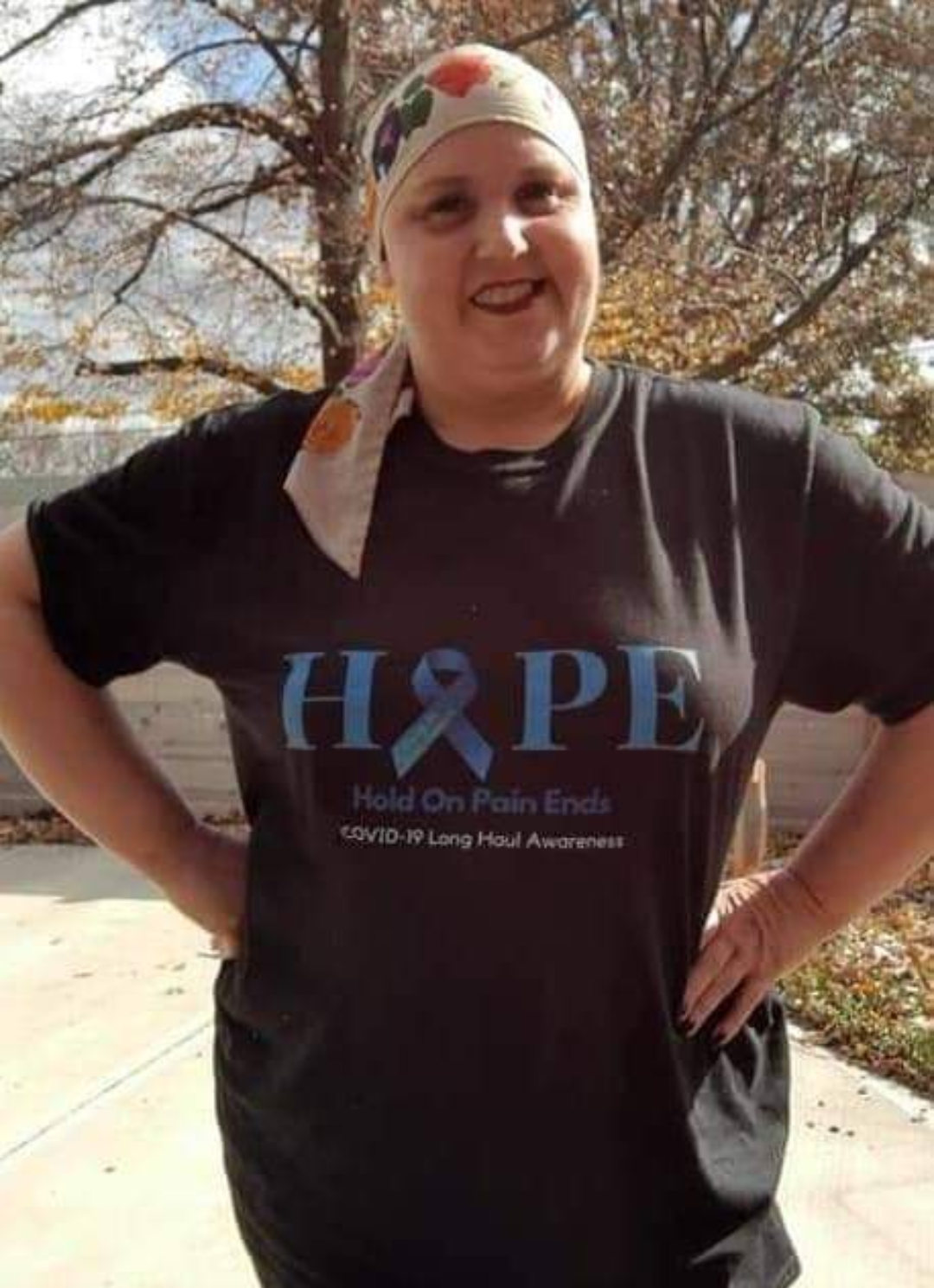COVID-19 long-hauler battling homelessness shares how virus caused financial hardships
KANSAS CITY, Mo. (KMIZ)
The COVID-19 pandemic has changed the way nearly everything works and has impacted billions of lives worldwide.
One Kansas City COVID-19 long-hauler has been battling homelessness due to the financial hardships the virus has caused her.
Meet Amanda Finley

Amanda Finley is a Missourian who calls herself a COVID-19 long-hauler. Someone who has 'long COVID-19'.
According to the Centers for Disease Control and Prevention, long COVID-19 is defined as "a wide range of new, returning, or ongoing health problems people can experience four or more weeks after first being infected with the virus that causes COVID-19." The CDC says long-haulers can have various health problems, including difficulty breathing, headaches, coughs, muscle pain and fatigue.
“This has been a journey that, of course, none of us ever saw this coming,” Finley said.
Finley said she first contracted COVID-19 in March 2020. At the time, she was working as an archaeologist.
During her initial sickness, Finley suffered from symptoms including extreme fatigue, heart palpitations, chest pain, brain fog and rashes.
"You just hit this wall; all you do is sleep," Finley said. "I would go to sleep hoping I would wake up."
She continued to suffer health problems caused by COVID-19 for months after her initial diagnosis, eventually giving her the title of a 'COVID-19 long-hauler'.
One study from the Journal of the American Medical Association found that analyzation of a statistical survey made of 57 studies comprised of over 250,000 people found that 54% of people who caught COVID-19 were still suffering from at least one symptom six months later.
Finley said that due to the severity and length of her symptoms, she could not work and stayed in her apartment for four months.
“There’s no way I could do any of that at that point," Finley said. "I just did some gig delivery jobs on the side."
As of July, long COVID can now be considered a disability under the Americans with Disabilities Act if the virus limits any 'major life activities.'
Finley said the apartment complex worked for her for a bit and took weekly payments for rent.
When it came time for Finley to renew her lease, the apartment complex chose not to renew, forcing Finley to move in with friends.
Finley said she caught COVID-19 again in October of 2020.
Finley said she felt like she was going through this journey alone and created a Facebook support group to connect with others going through similar journeys.
Eventually, after staying with friends for around a year, Finley decided to take to the woods.
"People don’t realize how big their bubbles are [and] their exposure risks," Finley said. "I just thought, you know, I love camping. I’m going to take to the woods. There's a state park I've been camping at for over 20 years, so I just went there.”
Finley moved to Weston Bend State Park in the Kansas City area and called it her temporary home until she could get back to a place of her own. When the weather got chilly and cold and Finley could afford it, she stayed in a hotel for a few days.
Love Columbia
According to Love Columbia, an organization that aims to help Missourians with financial hardships, many other Missourians are also facing the same financial struggles as Finley due to the impacts of the pandemic.
"We’ve really noticed that the availability of affordable housing has been very limited," Program Manager Conrad Hake said. "Up until this point, we’ve been in an affordable housing crisis.”
Hake said the organization has one particular rent assistance program through the Missouri Housing Development Commission called SAHFR, which aims at giving housing relief aid to Missourians impacted by the pandemic.
Love Columbia is one of almost 300 statewide organizations which can help individuals sign up for the SAHFR program, which can help pay rent for up to a year.
Executive Director of Love Columbia, Jane Williams said the organization has seen a higher need for financial help for housing.
"Five years ago, we were getting 40 to 50 new people calling us every week for help," Williams said. "Last year, it was 80 a week and this year we’re averaging 110 calls.”
Just like Finley's situation, Williams said they've been seeing more people in hotels.
"It’s become very clear that we just need to create more affordable housing."
Amanda Finley Today
Today, Finley continues to spread the word about COVID-19 long-haulers and her current battle with homelessness.
She is working to pay off $2,400 in rent due to her old apartment before she can move into a new one.
Finley's Facebook support group now has over 13,000 followers and likes and she continues to spread her message through the group as well as through Twitter and Tik Tok.
"This isn’t over, its far from over...this is going to take years to untangle this trauma," Finley said. "I'm happy with what i've done in this very rich life but now i have this mission and I'm very focused on helping other long-haulers."
Watch Meghan Drakas's full investigative report tonight on ABC 17 News on KMIZ.
